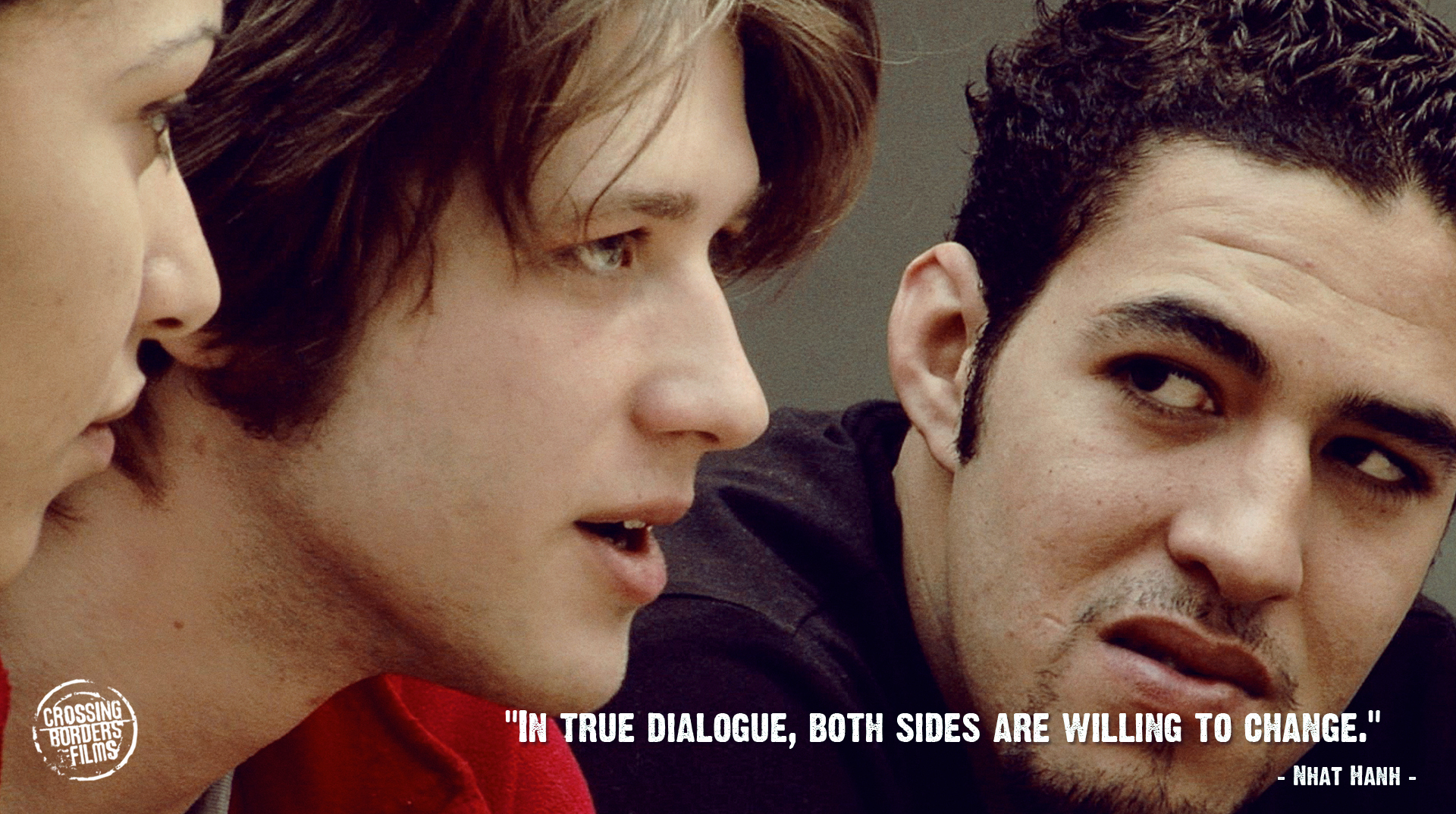About Dialogue
(Content below is inspired by Fostering Dialogue Across Divides, Essential Partners)
WHAT DIALOGUE IS – The dialogues that we encourage are conversations in which participants grow deeper mutual understanding, which in turn can support safe spaces in which building trust and joined actions become reality.
WHAT PARTICIPANTS DO
- They listen and are listened to with care.
- They speak and are spoken to in a respectful manner.
- They learn about the perspectives of others and reflect on their own views.
WHAT PARTICIPANTS GAIN
- Mutual understanding, which can stimulate reignited passion for learning and new ideas for constructive action
- Communication skills that strengthen them in difficult conversations of other life areas
- Meaningful connections across divides during times of polarization
WHAT SKILLS DEVELOP – Dialogue can be learned in the midst of our life’s interactions! We can strengthen our capacities for constructive dialogue by practicing skills and aptitudes like:
- Deep Listening: be fully present and show curiosity;
- Clarifying Intentions: use your awareness, show respect openly, welcome different views of yours and anticipate discovering also your own blind spots;
- Positive Inquiry: develop the art of asking questions for exploration, suspend your assumptions and judgements;
- Open Sharing: speak from the heart and risk sharing your personal stories/hopes/fears;
- Personal Reflection: acknowledge differences and similarities, support consciously an atmosphere of openness and take time to integrate new insights.
WHAT IT TAKES – Dialogue is present any time people genuinely seek mutual understanding, setting aside for that time the urge to persuade or the pressure to decide. It can occur spontaneously, among friends, in classrooms, in organizations, or even among strangers. Constructive dialogues are supported if participants have following elements:
- Clear purposes for the conversation.
- Communication agreements that help to achieve their purposes.
- Empathetic facilitators who support participants to honor their agreements and purposes.
WHAT DIALOGUE IS NOT – Dialogue is distinct from debate; in fact, participants in dialogue often explicitly agree to set aside persuasion and debate so that they can focus on mutual understanding. (Note: The table below contrasts debate as commonly seen on television with the kind of dialogue we aim to promote in constructive dialogues.)
DEBATE DIALOGUE
| Participants speak as representatives of groups, potentially affirming stereotypes. | Participants speak as individuals, from their own unique experiences, potentially questioning stereotypes. |
| The atmosphere is threatening; attacks and interruptions are expected by participants. | The atmosphere is one of safety; agreements support respectful exchange. |
| Participants speak to their own constituents. | Participants speak to each other. |
| Participants listen in order to expose faulty logic in the other side’s arguments. | Participants listen to understand and gain insight into the experiences and concerns of the others. |
Contact us to get to know our resources that can support you initiating constructive dialogues.



